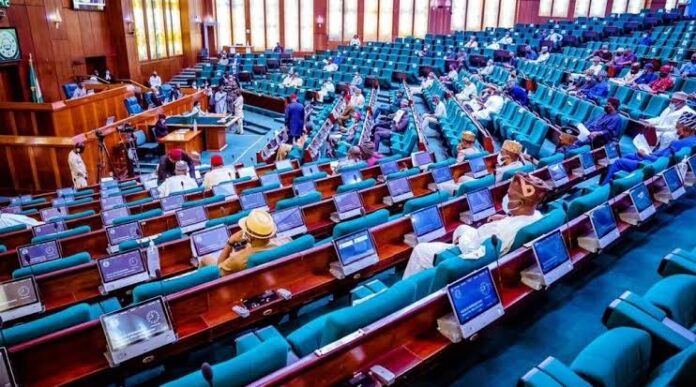The House of Representatives has announced plans to hold a legislative security summit in the final quarter of the year, with a focus on addressing Nigeria’s pressing security challenges. This was revealed in a speech by the Speaker of the House, Honorable Abbas Tajudeen, as he welcomed lawmakers back from their annual recess. The Speaker highlighted several key priorities for the remaining legislative session, stressing the need for reforms that would strengthen interagency collaboration and improve the use of technology in combating insecurity across the country.
In his address, Tajudeen explained that the upcoming summit would provide a platform for lawmakers to deliberate on the country’s security situation, which has been a major concern for citizens in recent years. With rising incidents of terrorism, banditry, kidnapping, and communal clashes, there is growing pressure on the government to find sustainable solutions to the security crisis. According to the Speaker, the summit will bring together stakeholders from various sectors, including security agencies, policymakers, and experts, to discuss new strategies and reforms that can improve Nigeria’s internal security framework.
 The Speaker noted that one of the key areas the House intends to focus on is legislative reforms that will enhance the efficiency and effectiveness of security agencies in the country. He emphasized that improving coordination and cooperation between different security outfits—such as the police, military, and intelligence agencies—will be crucial in achieving better results in the fight against insecurity. Tajudeen also highlighted the importance of leveraging technology to boost security efforts, stating that adopting modern surveillance systems, data analytics, and communication tools could significantly improve the country’s ability to track and respond to criminal activities.
The Speaker noted that one of the key areas the House intends to focus on is legislative reforms that will enhance the efficiency and effectiveness of security agencies in the country. He emphasized that improving coordination and cooperation between different security outfits—such as the police, military, and intelligence agencies—will be crucial in achieving better results in the fight against insecurity. Tajudeen also highlighted the importance of leveraging technology to boost security efforts, stating that adopting modern surveillance systems, data analytics, and communication tools could significantly improve the country’s ability to track and respond to criminal activities.
Another priority for the 10th House, according to Speaker Abbas, is the Electoral Offences Commission Bill, which he said will receive serious attention during this session. The bill, aimed at addressing electoral violence and malpractice, is seen as a critical piece of legislation that could safeguard Nigeria’s democracy by ensuring free, fair, and credible elections. The Speaker assured lawmakers that the bill would be expedited as it represents a necessary step toward curbing election-related crimes that have historically plagued the country’s political system.
In addition to security and electoral reforms, Speaker Abbas touched on the devastating effects of climate change, particularly the severe flooding that has ravaged several parts of the country. He expressed his deep sympathy for the victims of these floods, many of whom have lost their homes, livelihoods, and loved ones. The Speaker acknowledged that climate change is becoming an increasingly urgent issue for Nigeria, with environmental disasters such as floods, desertification, and erosion posing significant threats to communities across the country.
In response to these environmental challenges, Abbas emphasized that the House of Representatives would continue to prioritize legislation that addresses climate change and disaster relief. He mentioned the ongoing efforts to pass the Disaster Relief Bill, which aims to improve the country’s capacity to respond to natural disasters and provide timely assistance to affected individuals and communities. The Speaker assured the public that the House is committed to ensuring that adequate policies are put in place to mitigate the impact of climate change while also helping those who are most vulnerable to its effects.
As lawmakers return to continue their work, the Speaker underscored the importance of unity and collaboration within the House. He urged his colleagues to remain focused on their legislative duties, reminding them that their primary responsibility is to serve the Nigerian people by passing laws that improve security, promote democracy, and address socio-economic and environmental issues. Tajudeen’s call for legislative reforms, combined with his emphasis on technology and climate action, reflects a broad agenda aimed at tackling some of Nigeria’s most pressing challenges.
The upcoming legislative security summit, coupled with the push for electoral and environmental reforms, signals that the 10th House of Representatives is positioning itself to play a more proactive role in shaping policies that directly affect the well-being of Nigerians. As the year progresses, many will be watching to see how the House navigates these critical issues, and whether the proposed reforms will translate into tangible improvements on the ground.
In the meantime, the Speaker’s speech has set the tone for what is expected to be a busy and impactful legislative session, with security, electoral reform, and climate resilience at the forefront of the House’s agenda.




